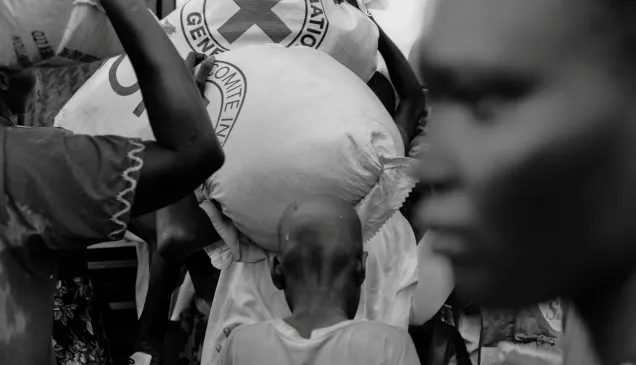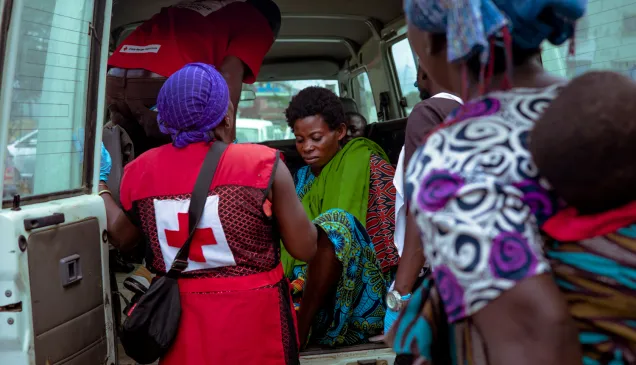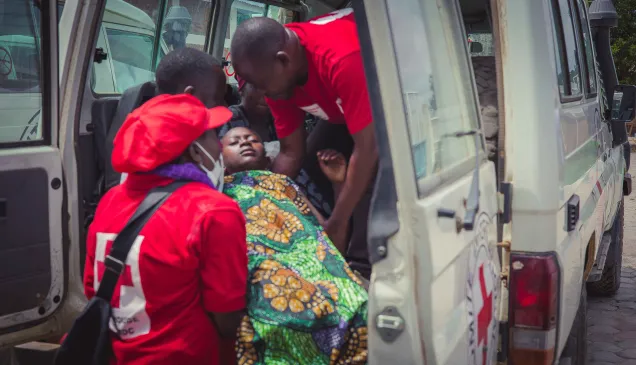Democratic Republic of the Congo: Béni inhabitants live in climate of tension
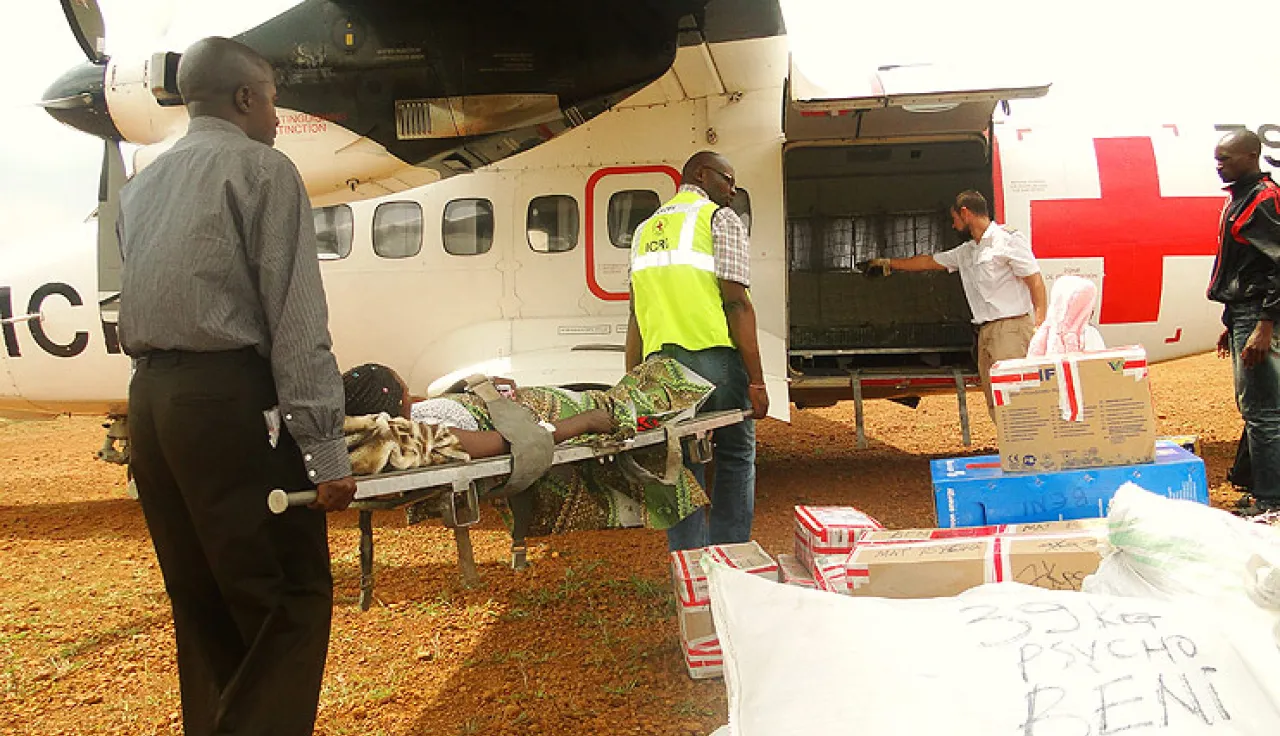
The Béni area of northern North Kivu province has endured several years of violence in connection with the conflict between Ugandan armed group the Allied Democratic Forces and the armed forces of the Democratic Republic of the Congo. The impact on local inhabitants has been huge, with abductions, murders, attacks and displacement being frequent occurrences. Arnaud Meffre, head of the ICRC office in Béni describes the recent resurgence of violence and stresses the need to respect and protect human life.
What is the situation in Béni and the surrounding region?
Around 120 inhabitants were attacked and killed in the area surrounding the city of Béni between 2 October and 1 November. The violence also left dozens wounded, including some with serious injuries resulting from knife attacks intended to behead or dismember. These indiscriminate attacks have been utterly shocking and most of the victims have been women and children. Civilian life and dignity absolutely must be preserved. People living in neighbouring areas and villages are gripped with extreme fear. Thousands of families have fled their homes to seek refuge in cities like Béni or in Orientale province further north. It's difficult to get hold of exact figures, but we're talking about several thousand displaced people. Most of these people have been taken in by other families. Others are sleeping in churches and schools. Some of my colleagues living in Béni are hosting loved ones who have fled their homes. There is a strong sense of solidarity in the region, but taking in displaced people does put additional strain on host families. However, since the attacks occur mainly at night, some people are finding they can still work their fields during the day and so bring back some food for the family.
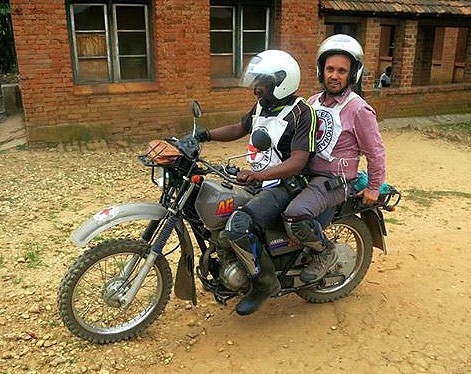
What have the Red Cross and the ICRC been doing in response?
When the death and injured toll is as high as this, the most urgent task is to transfer the wounded to medical facilities for treatment as quickly as possible. It's also essential to collect the remains of those who have been killed so that they can be handed over to their families for burial in line with local customs. The volunteers of the Red Cross Society of the Democratic Republic of the Congo are courageously undertaking this difficult job. The ICRC is supporting their work by providing body bags, chlorine, gloves and protective masks. Over a six-week period, the ICRC evacuated and treated 27 civilians with gunshot or knife wounds. Our delegates took a four-month-old baby with a gunshot wound to his arm to Ndosho hospital in Goma. His mother, brother and sister were all killed in the attack. The ICRC was able to track down the baby's father, who will look after him when he has recovered. We are working with other partner organizations to return around 50 children and adults home to their families, from whom they have been separated by the conflict. We're also arranging for 14 children and one particularly vulnerable adult to be repatriated to Uganda, where they will join members of their family. Since the beginning of the military operation led by the armed forces of the Democratic Republic of the Congo against the Allied Democratic Forces in January 2014, the ICRC has been regularly visiting people arrested in connection with the fighting. We have monitored the situation of those who needed hospital treatment, facilitated contact with their families and reminded the authorities of their obligations towards detainees.
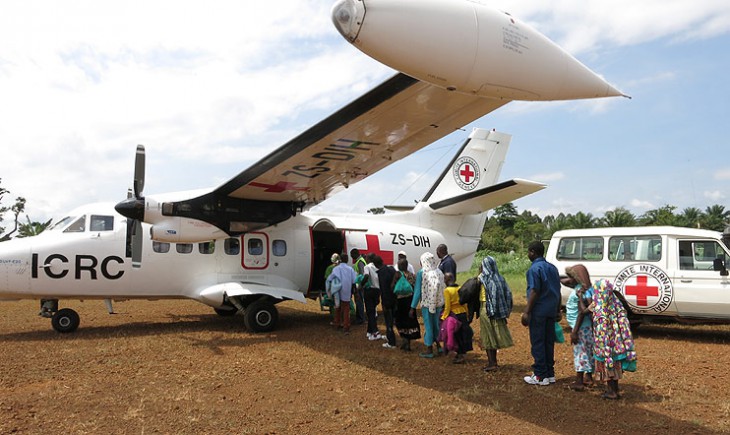
What kind of conditions are you working in?
The worsening security situation, repeated attacks and ceaseless rumours have created a climate of tension among the population. Some people are attacking the international forces, while others are taking the law into their own hands. In view of the situation, the authorities of the city of Béni have imposed a curfew from 6.30 p.m. to 6 a.m. It's essential that we maintain dialogue with representatives of the authorities and civil society in the city and territory of Béni. Despite the fact that we judge it not safe enough for our delegates to work in certain areas, where we don't have sufficient security guarantees, we still manage to respond to emergencies. Thanks to the Red Cross Society of the Democratic Republic of the Congo and to people that we know in the area where military action is taking place, we are able to arrange and facilitate the evacuation of war-wounded civilians as quickly as possible.
The ICRC office in Béni opened in 2007 and has around 60 members of staff, including four expatriates, who work to alleviate the impact of conflict and violence on civilians, the wounded and detainees.

